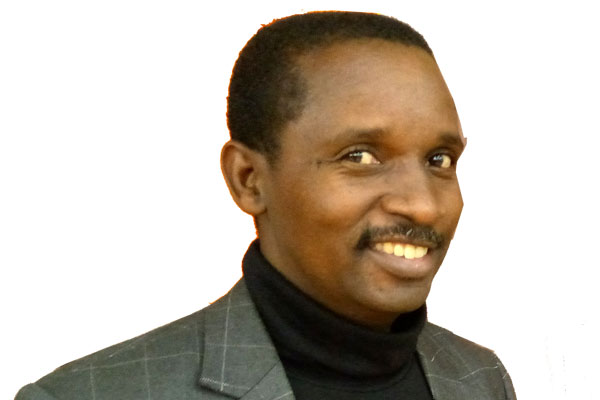Let peacekeeping go hand-in-hand with peacebuilding

Author: Mr Edgar K Buryahika. PHOTO/FILE.
What you need to know:
- Mr Edgar k Buryahika says: Leaders need to be exemplary so that the youth have many role models to look up to.
The just-concluded General Election in Uganda, especially when describing the Election Day to the majority, was a peaceful election. President-elect Yoweri Museveni, while addressing the nation on January 15 after he was declared the presidential election winner, referred to this election as the most peaceful election since 1962. He attributed this to the fingerprint detection machine that was used.
The ‘peace’ referred to during this period was more of peacekeeping. The Internet was switched off, and security was heavily deployed to deter any form of violence.
This was a decisive action taken by the State for the good of the country. Despite a few isolated cases of violence, it was successful. On the other hand, peacekeeping without peacebuilding is not sustainable; the different responsible stakeholders need to go back to the drawing board and invest more in peacebuilding.
We should create a situation where we do not only put our energy and resources on peacekeeping, but rather peace-building and peace sustaining mechanisms. Peacekeeping will only address the symptoms, but the underlying causes will remain active and keep piling up as they wait for an opportune time to show up and create violence and instability.
This was an election, but the underlying issues may show up during another activity and you never know. That might be at a time when we least expect violence and find peace keepers unprepared. Thus, addressing the root causes of violence during elections, which called for the radical measures of Internet switch off or deployment of heavy security on voting day, is paramount. We need to keep asking ourselves many ‘whys’ - why was the Internet switched off? Maybe it was to be misused by a section of society. Why heavy security deployment, maybe people were going to fight at polling stations, burn fuel stations, rig elections, etc.
Finding solutions to the many ‘whys’ can help. Unless these causes are addressed, we shall have unending cases of violence.
Underlying causes of violence may include unemployment, lack of trust in the justice system, insensitive media, drug abuse, corruption and leaders failing to meet people’s expectation, lack of role models, broken social norms and scarce and unequal distribution of resources, among others.
However, there should not be any justification for violence, there are many alternatives to violence and non-violence means. Society needs to embrace a culture of peace.
In the preamble of the UNESCO’s Constitution, it is written: ‘Since war begins in the minds of men, it is in the minds of men that the defences of peace must be constructed.’ This requires us to create a peace culture at an individual, community, national or international level.
We all need to embrace the values of tolerance, dialogue, respect, communication, forgiveness, justice, observe human rights-equal rights, democracy, and solidarity. This cannot be done in one day. It is a process that requires time, preparedness, commitment and resources.
It is not too late. We can still build a culture of peace through engaging our youth, who constitute about 78 per cent of our population, in various peace-building activities. Peace education, which goes hand-in-hand with human rights and justice at all levels, needs to be incorporated in our education system. This can significantly contribute to creating a culture of peace for sustainable development.
Besides, leaders need to be exemplary so that the youth have many role models to look up to when adopting a culture of peace. Cases of leaders fighting in public, inciting the youth poor communication, not admitting one’s mistakes, backstabbing, greed and selfishness, etc, need to stop.
Mr Edgar K Buryahika is the Founder, Youth for Peace and Development Uganda - YOPEDU. [email protected]




